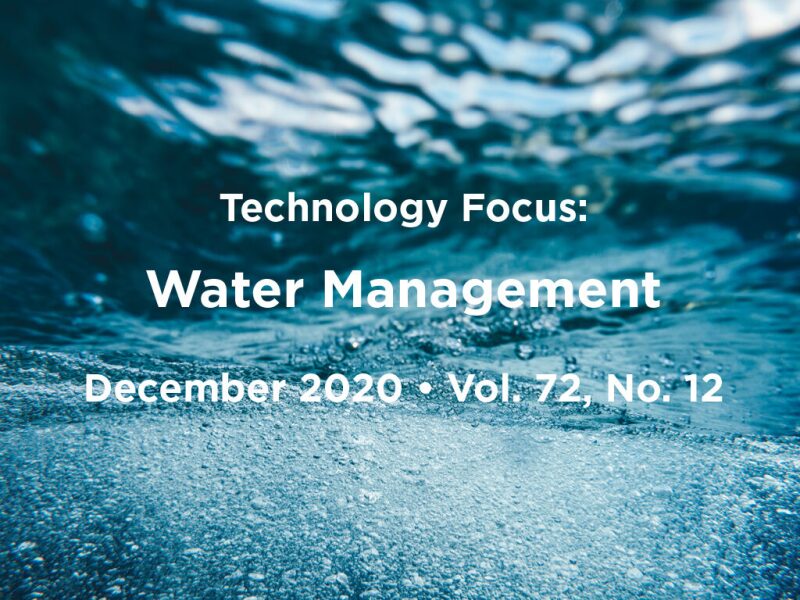The United Nations Brundtland Commission defined sustainability as “meeting the needs of the present without compromising the ability of future generations to meet their own needs.” In the context of this definition, sustainable water management should encompass current management of water resources as well as its potential effect on the future. Sustainable water management in oil and gas is a journey that will need approaches from many perspectives.
The highlighted papers illustrate the different perspectives and accompanying complexities that can advance progression toward more-sustainable water management. The approaches are multifaceted in that they consider technological, environmental, economic, and social needs and responsibility. The papers include issues and challenges in reuse/recycling of produced water, new guidelines to standardize application of risk-based assessments to assess potential environmental impact from produced-water discharge, and a novel certification process for responsible water use.
A common thread found in these papers is the understanding driving criteria for current water practices, and measurement of these criteria will enable continual improvement. An example of this is the assessment of the water footprint for production activity in the Peruvian Amazon by Repsol in their journey toward their Blue certification. The assessment of the water footprint provided a benchmark for improvement, which, in turn, highlighted parameters to measure and key areas for mitigation.
This Month's Technical Papers
Reuse of Produced Water Grows in the Oil and Gas Industry
Study Explores Risk-Based Approaches to Produced Water
Commitment to Responsible Water Management in the Peruvian Amazon
Recommended Additional Reading
SPE 199466 Removal of Residual Oil From Produced Water Using Magnetic Nanoparticles by Jared Theurer, University of Oklahoma, et al.
OTC 29791 First Development of Advanced Purification of Produced Water Technology at Greater Sirikit Oil Field by Dissolved Gas Flotation Technique by Nattapong Lertrojanachusit, PTTEP, et al.
SPE 200448 Managing Gas-Injection-Induced Excessive Water Production in Tight Oil Reservoirs by Optimizing Operational Constraints by Chi Zhang, Colorado School of Mines, et al.

| Rosa Swartwout, SPE, is a principal scientist at Baker Hughes. She is the current chair of the SPE Water Lifecycle and Strategy Technical Section and the Fluids Management group of the American Association of Drilling Engineers. Swartwout has more than 20 years of experience in topics related to drilling and completion fluids and holds BS and MS degrees in chemistry. Swartwout serves on the JPT Review Board and can be reached at rosa.swartwout@bakerhughes.com. |

